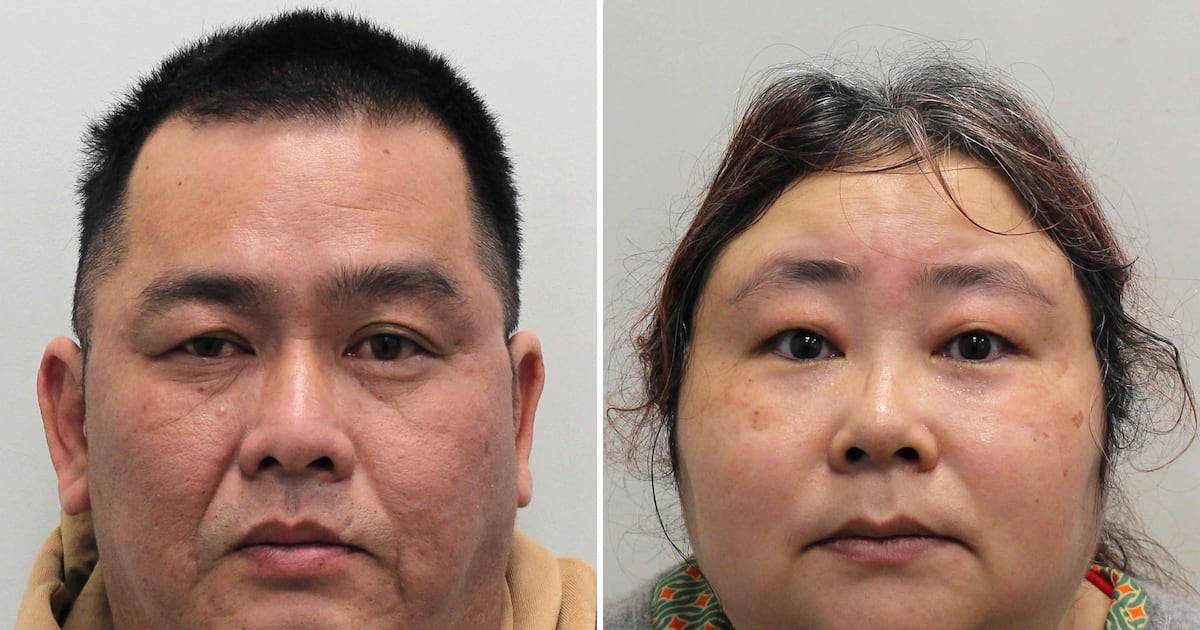A Chinese fraudster has been jailed for a scam which led police to make the UK’s largest cryptocurrency confiscation yet – Bitcoin worth more than £5.5 billion.
Zhimin Qian, 47, defrauded more than 128,000 people in China through a Ponzi scheme before fleeing to the UK.
She had stored the illegally obtained funds in Bitcoin assets and spent years evading UK police by sightseeing across Europe, staying in upmarket hotels, and living a life of “luxury”, Southwark Crown Court in London heard.
Qian, also known as Yadi Zhang, was arrested in 2024 after spending nearly six years at large in what has been described as the UK’s largest cryptocurrency seizure.
The businesswoman was sentenced to 11 years and eight months at the same court on Tuesday after admitting money laundering offences and transferring and possessing criminal property, namely cryptocurrency.
Her accomplice Seng Hok Ling, 47, was also sentenced to four years and 11 months in prison after pleading guilty to transferring criminal property over his role in the multibillion-pound fraud.
When Qian and Ling were convicted in September, the value of the Bitcoin was priced at more than £5.5 billion, according to Metropolitan Police officers.
It is understood that the value is constantly changing, and is currently priced at about £5 billion.
String of victims
Gillian Jones KC, prosecuting, told the sentencing hearing that Qian had defrauded more than 128,000 victims between 2014 and 2017 through her business Lantian Gerui.
Qian came to the attention of Chinese authorities, prompting her to flee the country before arriving in the UK in September 2017.
There, she recruited Jian Wen to help her “set up a new life”.
In September, Qian started renting a property in Hampstead, London, having told an estate agent that she ran a successful jewellery business.
The monthly rent for this property was £17,333, the court heard.
The sentencing hearing was told that Qian travelled extensively throughout Europe in the months and years that followed, staying in expensive hotels.
It was heard that during these trips, “Bitcoin was transferred and sold in exchange for cash, fine jewellery bought and property in Europe considered for purchase”.
In one trip, Qian and Wen spent £119,200 purchasing two watches at a jewellery shop in Zurich, Switzerland.
In 2018, Qian attempted to buy a £12.5 million property in London and after suspicions about her Bitcoin were raised, UK authorities were notified.
Metropolitan Police officers visited her Hampstead home with a search warrant in October 2018.
Qian provided the fake name of Yadi Zhang to officers, and the court heard that at this stage the police did not know who she was.
Officers discovered laptops in her property with millions of pounds worth of Bitcoin contained on them.
No arrests were made at that stage and Qian fled the country after this raid.
The court heard that in a later discovery officers found documents recording Qian’s “aspirations and intentions”.
The court heard that one of these detailed her intention to become the “monarch of Liberland”, which is a “self-proclaimed country” consisting of a strip of land between Croatia and Serbia.
The court heard that for nearly six years, Qian managed to “evade arres, a transfer of Bitcoin was made which led police to identify Seng Hok Ling at an address in York.
Police visited the address in April 2024 and discovered Qian.
Authorities discovered several devices at Qian’s address, including a laptop containing a cryptocurrency wallet with millions of pounds worth of Bitcoin.
She was arrested at the address in York in April 2024 and taken to a local police station.
Qian was subsequently charged with the money laundering offences.
Boss lady
The court heard Ling, a Malaysian national who lives in Derbyshire, had provided assistance to Qian, including by arranging rental properties for her to live in.
Richard Thomas KC, mitigating on behalf of Qian, said his client has “no previous convictions” and has maintained an “exemplary record” while in custody.
Narita Bahra KC, representing Ling, said her client did not know the “full extent” of Qian’s criminality and described her as the “boss lady.”
She said: “This was a subservient role for Mr Ling.
“The first defendant (Qian) was described as ‘boss lady’, ‘the boss’, and all the evidence points to that being the position that Mr Ling acted on the direction of the first defendant.”
She said Ling, who had a previous conviction for fraud, did not have any “enrichment beyond employment payments”.
Wen was convicted of one charge of money laundering after a trial at Southwark.
She was later sentenced to six years and eight months’ imprisonment.
